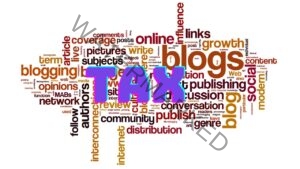Introduction
Every year, individual and corporate taxpayers pay income tax, and for every month they pay VAT. To establish the amount of income tax and VAT payable, purchase cash receipts and invoices are crucial.
(Post continues after the photo)

[bha id=’https://www.bluehost.com/track/wakaguyu’ size=’190×60′ variation=’01’ align=’none’]
The income tax payable is based on the profits made in that year of income. The profits made are determined by the difference between total sales and total purchases with several adjustments. Every month, the VAT payable is established as the tax on the value-added. The value-added is presumed to be the difference between the sales and the purchases.
Why?
Sales, whether in cash or on credit, are generally documented via cash sale receipts or invoices. However, most purchases are not recorded. There are several reasons for this:
- Some taxpayers do not appreciate the value of cash purchase receipts and invoices.
- Some taxpayers do not ask for cash purchase receipts and invoices on making purchases, for example, many taxpayers do not ask for receipts at the petrol station after fueling the vehicles.
- When some taxpayers are issued cash-purchasing receipts and invoices, they do not take them away.For example, many taxpayers leave parking receipts at KAPS tills.
- Some taxpayers pick the cash purchase receipts and invoices but then throw them away.
- When some taxpayers take the cash purchase receipts and invoices away, they do not capture them in their tax reporting.
- When some taxpayers capture the cash-purchasing receipts and invoices, they do not do it within the stipulated periods.
- Sometimes the cash purchase receipts and invoices are not TAX cash purchase receipts and invoices. The documents do not have ETR details and do not have a PIN.
Results
If a taxpayer does not have cash purchase receipts and invoices, several things will happen:
- It will be easy to establish yearly or monthly sales but not purchases. Hence, the taxpayer will not be able to determine the correct amount of income tax during the year of income or VAT payable for the month.
- For the year of income, the taxpayer will report high profits and hence more income tax to pay.
- VAT on sales will be high with minimal VAT on purchases. Therefore, the taxpayer will pay more VAT.
- When not claimed on time, the taxpayer will no longer have the opportunity to utilize the cash purchase receipts, and invoices amount as expenses for income tax purposes or as input for VAT purposes. This is because income tax is accounted for yearly, and a taxpayer cannot shift the purchases from one year of income to another year of income. For VAT, the purchases must be claimed within a specified period.
- If the cash-purchase receipts and invoices are not tax-cash purchases receipts and invoices, the taxpayer cannot use them in the tax reporting. Tax cash purchase receipts and invoices must have ETR details where applicable and PIN details always.
What to do
Many taxpayers have paid extra taxes because of a lack of cash purchase receipts and invoices, not reporting the cash purchase receipts and invoices on time, and not having tax cash purchase receipts and invoices. To minimize the amount of tax payable, whether income tax or VAT, an individual taxpayer must do the following:
- Recognize and appreciate the importance of cash purchase receipts and invoices in tax reporting – the documents will enable the taxpayer to minimize the tax payable, whether income tax or VAT.
- Do not make any payments without cash purchase receipts and invoices.
- Always ask for cash purchase receipts and invoices.
- When issued with cash purchase receipts and invoices, pick them, you will need them later.
- When you pick the cash-purchase receipts and invoices, do not throw them away, you will use them later.
- Utilize the cash purchase receipts and invoices in your tax reporting. Capture the details immediately one gets to the office or home.
- Report the cash purchase receipts and invoices within the stipulated time frames
Ensure the issued cash purchase receipts and invoices have ETR and PIN details. These eight steps will enable the taxpayers, whether individual or corporate minimize the amount of income tax they will pay yearly and the amount of VAT payable monthly.
Conclusion:
- Purchase cash receipts and invoices are crucial in determining income tax and VAT payable in any year of income and for every VAT tax period.
- It is important to collect all purchase cash receipts and invoices.
- Ensure that the purchase cash receipts and invoices are crucial have ETR details and PIN..
What to do?
- Always make sure you ask for cash receipts and invoices.
- File all the cash receipts and invoices for every tax period.
OUR CALL!
Remember to:
a. SUBSCRIBE to this Website and YouTube Channel
b. LIKE videos in our YouTube Channel.
c. Leave a COMMENT on this Website and YouTube Channel.
Feel free to send us tax and investments in Kenya questions or topics via email taxkenya@gmail.com that you would wish to be covered in this Website.
[bha id=’https://www.bluehost.com/track/wakaguyu’ size=’190×60′ variation=’01’ align=’none’]
(Disclosure: This website receives compensation from companies whose adverts appear here. We only promote products that we have used. We are an independent website and any opinions that are expressed here are our own.)
Disclaimer
This post is for general overview and guidance and does not in any way amount to professional advice. Hence, www.taxkenya.com, its owner or associates, does not take any responsibility for the results of any action taken based on the information in this post or for any errors or omissions. Posts in this Website interpret tax law in Kenya and put it into simple language. The posts are also on tax news. Kenyan taxpayers must always rely on the most current information from KRA. The tax industry in Kenya is very dynamic.
© Dr Wakaguyu Wa Kiburi
Email: taxkenya@gmail.com
Twitter: @taxkenya
Facebook: fb.me/taxkenya
Youtube: youtube/taxkenya.com shows




